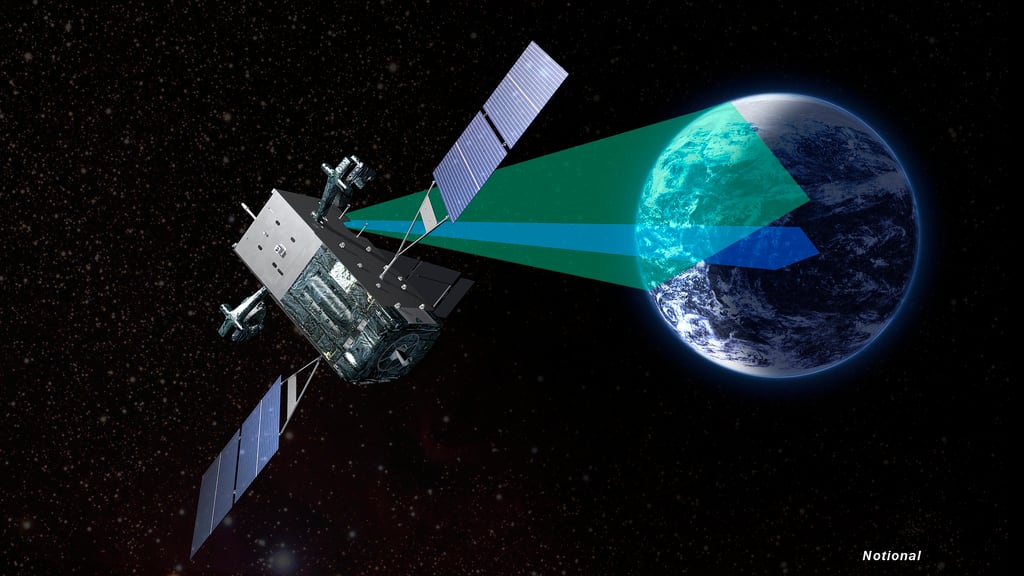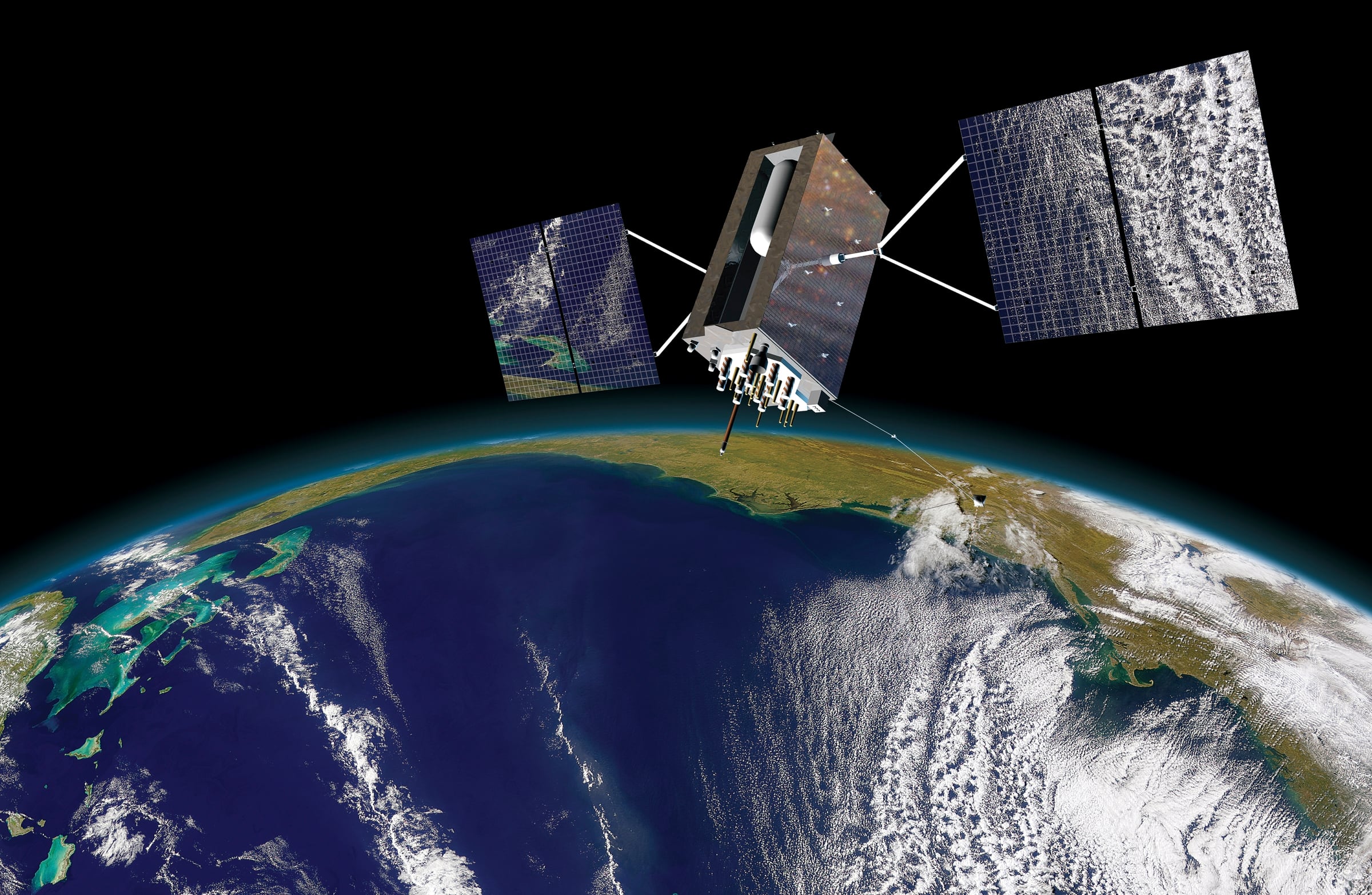The payload on the next generation of the U.S. Air Force’s missile warning satellite system will be developed by the winner of a competition that pits two defense industry giants against each other.
Raytheon and a team from Northrop Grumman and Ball Aerospace will compete to develop the mission payload for the Next Generation Overhead Persistent Infrared (Next Gen OPIR) Geo Synchronous (GEO) Block 0 missile warning system, according to an Oct. 4 release from Lockheed Martin.
The Air Force awarded Lockheed Martin a $2.9 billion contract in August to build three-geosynchronous Earth orbit satellites. Lockheed Martin then selected the two teams as potential sub-contractors on Sep. 28, about 45 days after the original contract was rewarded.
“The Raytheon and Northrop Grumman/Ball Aerospace teams were selected due to their ability to meet stringent schedule and capability requirements,” according to the Lockheed Martin release.
The two teams are now tasked with developing detailed mission payload designs and will compete their solutions for potential use on the Next Gen OPIR Block 0 GEO system. These mission payloads contain advanced sensors that meet national security satellite requirements and are used to help detect missile launches across the world.
The procurement of the Next Gen OPIR Block 0 GEO system also offers a look at the Air Force’s plans to achieve space supremacy through a series of rapid procurement programs, or as the Air Force dubbed it, “Go Fast” acquisition. Air Force officials say they are targeting the first GEO satellite delivery in 60 months.
"As we develop these new systems, speed matters," said Secretary of the Air Force Heather Wilson. "The next generation missile warning satellite will be a pace-setter."
The Next Gen OPIR Block 0 GEO system will follow the current Space Based Infrared System. Lockheed Martin was the prime contractor on SBIRS with Northrop Grumman as the major subcontractor on the payload. The program took nearly 15 years from the Secretary of Defense for Acquisition and Technology initial approval of the program to the launch of the first satellite in 2011.
Lockheed Martin expects to select a winner in the payload competition in 2020, with the Air Force targeting the first Next-Gen OPIR launch in 2023.








